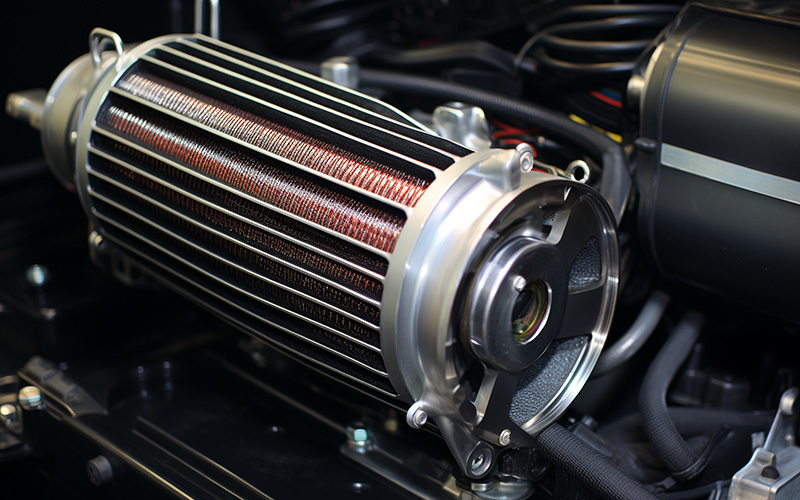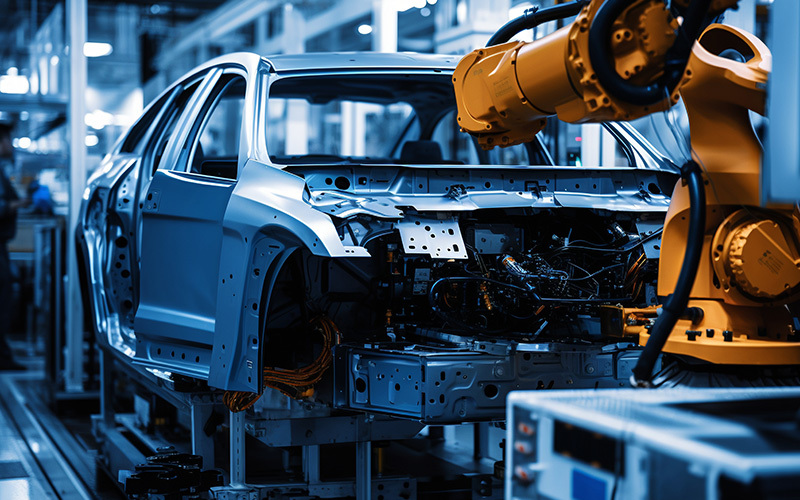Exploring the Evolution of Auxiliary Parking Heater Controls: A Comprehensive Overview
Release Time:
Jul 12,2025
Exploring the Evolution of Auxiliary Parking Heater Controls Table of Contents 1. Introduction to Auxiliary Parking Heaters 2. Historical Development of Auxiliary Parking Heater Controls 3. Technological Advancements in Parking Heater Controls 4. Current Standards and Regulations 5. Benefits of Modern Auxiliary Parking Heater Controls 6. Future Trends in Parking Heater Technology 7.
Exploring the Evolution of Auxiliary Parking Heater Controls
Table of Contents
- 1. Introduction to Auxiliary Parking Heaters
- 2. Historical Development of Auxiliary Parking Heater Controls
- 3. Technological Advancements in Parking Heater Controls
- 4. Current Standards and Regulations
- 5. Benefits of Modern Auxiliary Parking Heater Controls
- 6. Future Trends in Parking Heater Technology
- 7. Common Issues and Solutions
- 8. Conclusion
- 9. Frequently Asked Questions
1. Introduction to Auxiliary Parking Heaters
Auxiliary parking heaters play a crucial role in enhancing vehicle comfort, especially in cold weather conditions. These devices allow drivers to preheat their vehicles, ensuring a warm interior before embarking on a journey. The evolution of auxiliary parking heater controls has been significant, reflecting the changing needs of consumers and advancements in technology. Understanding this evolution is essential for both manufacturers and consumers who wish to appreciate the benefits and functionalities of these systems.
2. Historical Development of Auxiliary Parking Heater Controls
The history of auxiliary parking heaters dates back to the early 20th century. Initially, these heaters were simple devices that used engine heat to warm the cabin. However, as automotive technology advanced, so did the complexity and efficiency of parking heater controls.
2.1 Early Innovations
In the beginning, parking heaters were primarily mechanical, relying on basic thermostatic controls. These devices were rudimentary and often inefficient, leading to inconsistent heating and increased fuel consumption. The introduction of electronic controls in the 1980s marked a turning point, enabling more precise temperature regulation and improved fuel efficiency.
2.2 Advancements in Design
By the late 1990s, manufacturers began incorporating digital controls, allowing users to set their desired temperature with greater accuracy. This advancement also led to the development of programmable timers, enabling drivers to schedule heating times according to their daily routines. Such features significantly enhanced user convenience and comfort.
3. Technological Advancements in Parking Heater Controls
The 21st century has ushered in a new era of technological advancements in auxiliary parking heaters. Modern systems leverage sophisticated electronics and connectivity features that were unimaginable a few decades ago.
3.1 Integration with Vehicle Systems
Today’s auxiliary parking heater controls are often integrated with other vehicle systems, including climate control and infotainment systems. This integration allows for seamless operation and user-friendly interfaces, making it easier for drivers to manage their vehicle's heating system effectively.
3.2 Smart Technology
The rise of smart technology has also influenced the evolution of parking heater controls. Many systems now feature smartphone connectivity, enabling remote control of heaters from a mobile device. This feature allows drivers to start heating their vehicle while still at home or work, ensuring a comfortable environment upon entry.
4. Current Standards and Regulations
As auxiliary parking heaters have become more popular, regulatory bodies have established standards to ensure safety and efficiency. Compliance with these regulations is crucial for manufacturers aiming to market their products effectively.
4.1 Emission Standards
Many countries have implemented strict emission standards for automotive heating systems. Auxiliary parking heaters must comply with these regulations to minimize environmental impact while providing efficient heating solutions.
4.2 Safety Regulations
Safety is a paramount concern in the automotive industry. Modern parking heaters are designed with multiple safety features, including overheat protection and automatic shut-off mechanisms, to prevent accidents and ensure user confidence.
5. Benefits of Modern Auxiliary Parking Heater Controls
The advancements in auxiliary parking heater controls have brought numerous benefits to users, making them an indispensable component in modern vehicles.
5.1 Enhanced Comfort
The primary benefit of auxiliary parking heaters is the enhanced comfort they provide. By preheating the vehicle, drivers can avoid the discomfort of entering a cold cabin, significantly improving their driving experience, especially in winter months.
5.2 Improved Fuel Efficiency
Modern parking heaters are designed to be fuel-efficient, using less fuel than older models while providing effective heating. This efficiency not only saves money but also reduces the vehicle's carbon footprint.
5.3 Increased Vehicle Longevity
Heating the cabin before starting the vehicle can help reduce engine wear and tear. By using an auxiliary heater, drivers can decrease the strain on their engine, potentially extending the life of their vehicle.
6. Future Trends in Parking Heater Technology
As technology continues to advance, the future of auxiliary parking heater controls looks promising. Several trends are beginning to emerge, which could shape the next generation of these systems.
6.1 Enhanced Connectivity
Future systems are expected to feature even more advanced connectivity options, including integration with smart home systems. This could allow users to control their parking heaters through voice commands or automated schedules linked to their daily routines.
6.2 Sustainable Heating Solutions
With a growing emphasis on sustainability, manufacturers are exploring alternative energy sources for parking heaters. Electric and hybrid models that reduce reliance on fossil fuels are likely to gain traction in the market.
7. Common Issues and Solutions
While auxiliary parking heaters are generally reliable, users may encounter common issues that can affect performance.
7.1 Ineffective Heating
If a parking heater fails to provide adequate heat, it may be due to a clogged filter or low fuel levels. Regular maintenance and inspections can often resolve these issues, ensuring optimal performance.
7.2 Control Malfunctions
Control malfunctions can arise from electrical issues or software bugs. In such cases, resetting the system or consulting a professional technician can often rectify the problem.
8. Conclusion
The evolution of auxiliary parking heater controls reflects the broader advancements in the automotive industry, driven by consumer demand for comfort and efficiency. As technology continues to evolve, we can expect even more innovative solutions that will enhance the functionality and user experience of these essential devices. Understanding the historical context and current trends will empower consumers to make informed decisions regarding auxiliary parking heater systems, benefiting from the advancements that have shaped this crucial aspect of vehicle comfort.
9. Frequently Asked Questions
9.1 What is an auxiliary parking heater?
An auxiliary parking heater is a device installed in vehicles that allows for preheating the cabin and engine, providing comfort before driving, especially in cold weather.
9.2 How do auxiliary parking heaters work?
These heaters typically run on fuel or electricity to warm the air in the cabin before the engine is started, utilizing either thermal energy from the engine or dedicated heating elements.
9.3 Are parking heaters fuel-efficient?
Yes, modern parking heaters are designed to be fuel-efficient, providing effective heating while consuming less fuel than older models.
9.4 Can I control my parking heater remotely?
Many modern auxiliary parking heaters offer smartphone connectivity, allowing users to control the system remotely for added convenience.
9.5 What maintenance do auxiliary parking heaters require?
Routine maintenance includes checking fuel levels, cleaning filters, and inspecting electrical connections to ensure optimal performance and longevity.
This comprehensive article aims to provide a detailed understanding of auxiliary parking heater controls and their evolution, positioning us to better serve users seeking in-depth knowledge on this topic.
Keywords:
You Can Also Learn More About Industry Trends





